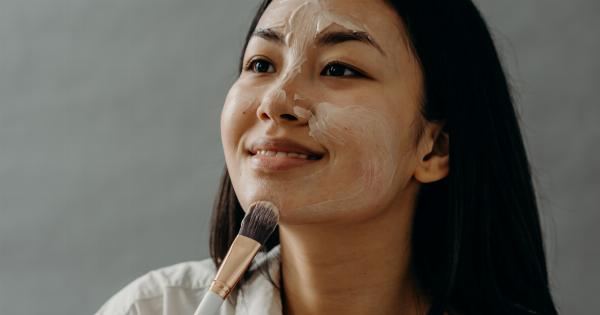Anti-wrinkle creams have become increasingly popular over the years, with many people believing that these products can help to reduce the appearance of wrinkles and fine lines on the face.
Unfortunately, many of these creams contain ingredients that can negatively impact the health of your skin, including increasing your risk of developing skin cancer.
What Causes Wrinkles?
Before delving into the dangers of anti-wrinkle creams, it’s important to understand what causes wrinkles to form in the first place. There are many factors that can contribute to the development of wrinkles, including:.
- Aging: As we age, our skin loses elasticity and becomes less flexible, making it more prone to sagging and wrinkling.
- Exposure to sunlight: UV rays from the sun can damage the skin’s collagen and elastin fibers, causing the skin to become less supple and more prone to wrinkles.
- Environmental pollutants and toxins: Exposure to pollution, cigarette smoke, and other toxins can damage the collagen and elastin fibers in the skin, leading to the formation of wrinkles.
The Problems with Anti-Wrinkle Creams
While anti-wrinkle creams may seem like a simple solution to the problem of wrinkles, many of these products contain ingredients that can have negative effects on your skin’s health.
Some of the most common ingredients found in these creams include:.
- Retinyl palmitate or retinol: These ingredients are often used in anti-aging creams because they can help to boost collagen production in the skin. However, they also make the skin more sensitive to sunlight, increasing the risk of sunburn and skin cancer.
- Fragrances and preservatives: Many anti-wrinkle creams contain fragrances and preservatives that can irritate the skin and cause allergic reactions. Some of these chemicals can also disrupt the body’s hormonal balance, leading to further health problems.
- Hydroquinone: This ingredient is often used in skin-lightening products, including some anti-wrinkle creams, because it can help to even out skin tone. However, hydroquinone is a known carcinogen and can increase the risk of skin cancer.
How Anti-Wrinkle Creams Can Increase Your Risk of Skin Cancer
Anti-wrinkle creams that contain retinyl palmitate or retinol can make the skin more sensitive to sunlight, increasing the risk of sunburn and skin cancer.
This is because these ingredients increase the rate at which skin cells turn over, causing the skin to become thinner and more prone to damage from UV rays.
In addition, hydroquinone, a common ingredient in some anti-wrinkle creams, has been linked to an increased risk of skin cancer. This is because hydroquinone can cause DNA damage in skin cells, leading to mutations that can eventually lead to cancer.
Safe Alternatives to Anti-Wrinkle Creams
If you’re looking for ways to reduce the appearance of wrinkles without putting your skin’s health at risk, there are several safer alternatives to traditional anti-wrinkle creams. Some of these include:.
- Healthy diet and lifestyle: Eating a healthy diet rich in fruits and vegetables, staying hydrated, and avoiding smoking and excessive alcohol consumption can all help to keep your skin looking healthy and youthful.
- Regular exercise: Exercise can help to increase blood flow to the skin, delivering oxygen and nutrients that can help to keep it healthy.
- Sun protection: Wearing protective clothing and using sunscreen can help to reduce your risk of sunburn and skin cancer.
- Moisturizers: Using a daily moisturizer can help to keep your skin hydrated and supple, reducing the appearance of fine lines and wrinkles.
The Bottom Line
While anti-wrinkle creams may seem like an easy fix for the problem of wrinkles, many of these products can actually do more harm than good when it comes to your skin’s health.
By using safer alternatives and taking steps to protect your skin from the damaging effects of the sun and environmental pollutants, you can help to keep your skin looking healthy and youthful without putting your health at risk.



























